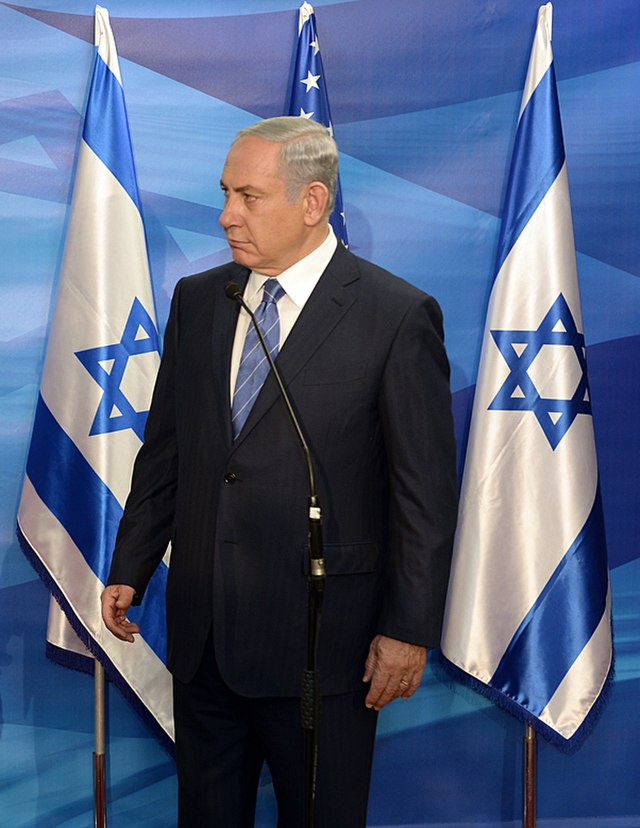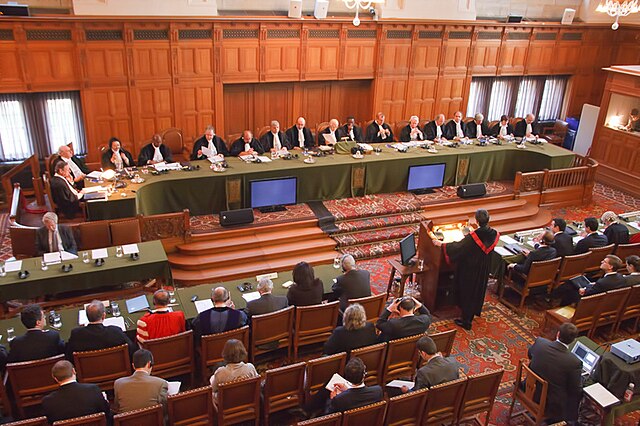On January 26, 2024, the International Court of Justice (ICJ) handed down a long-awaited decision on the emergency measures requested by South Africa in its case against Israel. The charges are serious, and obviously justified: according to the court, Israel should have taken measures to put an end to the genocide underway in Gaza. But what happens now?
In the 84-page document submitted to the courts, South Africa says that the Israel military campaign in Gaza is “genocidal in character” because it is intended to bring about the “destruction of a substantial part of the Palestinian national, racial and ethnical group” of Palestinian’s living in Gaza. “Israel has failed to prevent genocide and is committing genocide in manifest violation of the Genocide Convention” the document reads.
Although genocide cases take years to resolve, South Africa has asked the courts to immediately implement “provisional measures” that order a ceasefire and halt Israel military operations in Gaza. Cara Cunningham Warren, a law professor at the University of Windsor, said in an interview before the ruling that “South Africa has a very strong claim that this is an urgent matter, and there’s irreparable harm [to Palestinians].”
South Africa’s claim that the court must urgently act to protect civilians is a central argument to the case. Warren explained that the court would debate how urgent the situation is. “If the case doesn’t get taken up, would there be irreparable harm done? So even if South Africa wins four years from now, has the harm already been done, and tens of thousands of people have died?”
But the ICJ ruling might not matter anyways. Israel officials were quick to dismiss the court and suggest that Israel would not follow any rulings, “we will restore security to the North and the South. Nobody will stop us—not The Hague, not the axis of evil and not anybody else” tweeted, Israeli Prime Minster Benyamin Netanyahu during the initial ICJ hearings.

Similarly, Putin recently defied the ICJ ruling against the war in Ukraine. In February 2022, the ICJ officially declared the war illegal and ordered Russia to halt its invasion. Putin ignored the order. Although the ICJ’s rulings are legally binding, there is no mechanisms to enforce orders. “It’s not equipped to handle a real life controversial case like the one before it now” said Warren. With the South Africa case, “the most the court would say is that South Africa has a plausible claim that genocide is occurring, and thats the most they could say”.
Following the Second World War and the Nazi Holocaust, the 1948 Genocide Convention was adopted and is signed today by 152 state-parties, including Israel, that internationally criminalizes genocide. The convention defines genocide as “acts committed with intent to destroy, in whole, or in part, a national, ethnical, racial or religious group” including acts that kill members of the group and cause serious bodily and mental harm to the group.
The ICJ is the court that handles cases between member-states and aims to settle disputes such as border issues, or genocide, like the case against Bosnia in 1993. During the 1992-1995 Bosnia war, the ICJ intervened ordering Serbia to uphold “certain provisional measures” that protected human rights “under the Genocide convention.” Two years later in 1995, Bosnian-Serbs systematically murdered 8000 Bosnian Muslims in Srebrenica, committing Europe’s only ruled genocide since WWII.
Like the 1992 ICJ ruling, any decision from The Hague is unlikely to stop the war, or prevent genocide. But on the whole, the South African case can be seen as reinforcing Israel’s international isolation as support for Palestine is still growing. At the time of the ICJ hearings, Israel was reportedly letting in more aid to Gaza, although the amount is still minuscule, according to U.N. agency UNRWA. Recent updates from Gaza state over 25,000 civilians have been killed, mostly women and children, and another 63,000 wounded.


Be part of the conversation!
Only subscribers can comment. Subscribe to The North Star to join the conversation under our articles with our journalists and fellow community members. If you’re already subscribed, log in.